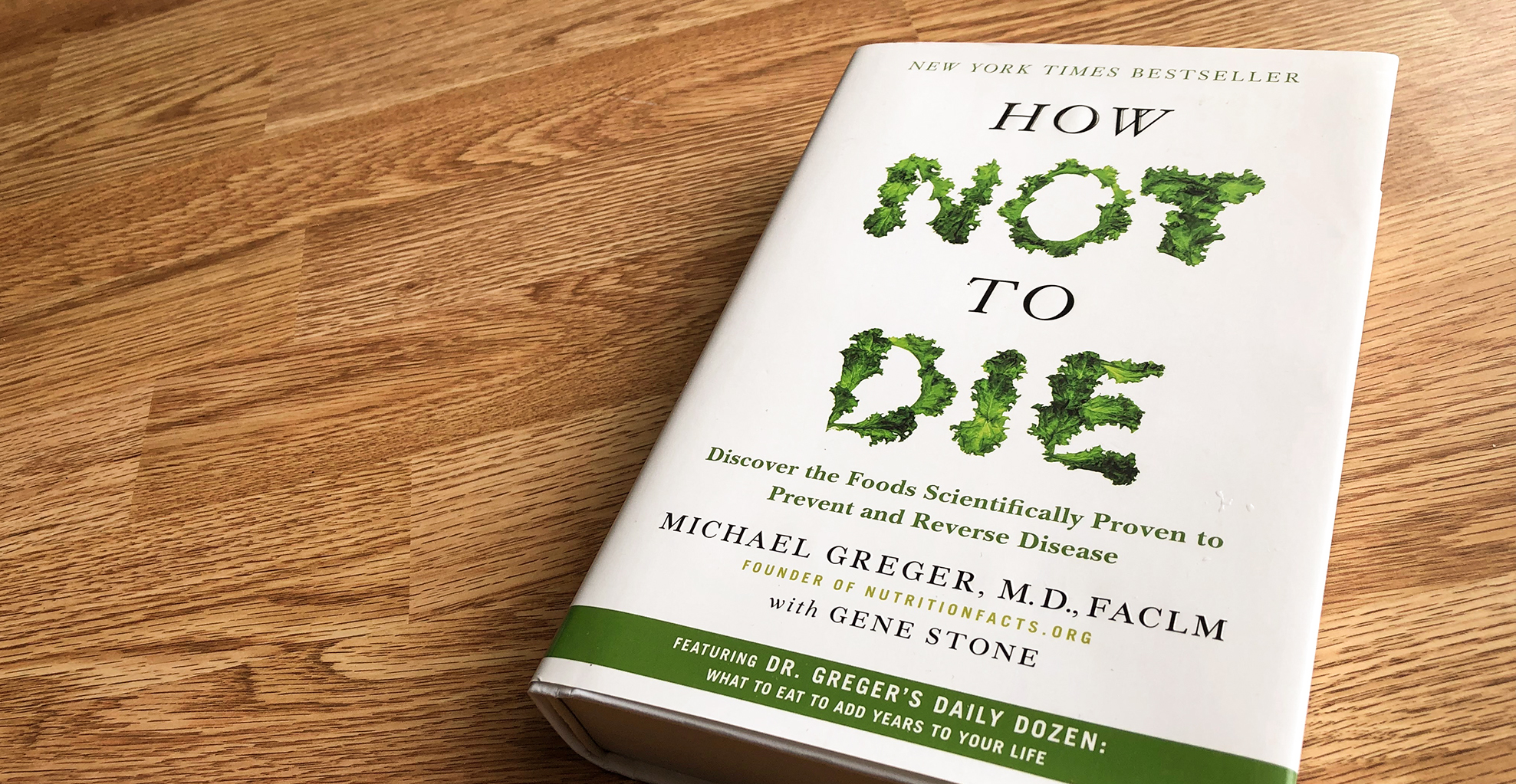
If So, Can I Go Back To Eating Fruit With Starches?
A few years back I did a blog post on food combining. The idea of which was such a large part of my nutritional education that I’ve tried to incorporate it into my day-to-day life since then. The concept behind food combining is that certain food types shouldn’t be eaten together as their combination can hinder digestion. I have a few books explaining how it is absolutely essential to be able to absorb the full quantity of nutrients from your food, many of which are school textbooks. At no point did I ever consider this might be total bullshit.
The other day I stumbled across Abby Langer’s blog. Abby is a Registered Dietician and avid nutrition blogger. One of her recent posts was Food Combining is Completely Ridiculous and No, You Shouldn’t Try It. I was a bit taken aback. The idea of food combining was so integrated into my studies at nutrition school that I had never second-guessed it before. Was I taught something that had no evidence to back it up? In an effort to get all my facts in order, I set out to find out if food combining was, in fact, total BS. This is what I found.
Food Combining, In A Nutshell
In case you need a refresher, the principles of food combining result from the idea that the body simply cannot digest meals that contain a combination of fats, carbs, and protein, since each macronutrient requires different pH conditions and enzymes to digest. It asks that you separate your meals based on the macronutrient that is predominant in each. The principles state that:
- Proteins, acidic fruits, and green vegetables can be eaten together.
- Fats, starches, and green vegetables can be eaten together
- Starches, and proteins, fats and proteins, and starches and acidic fruit should NOT be eaten together.
In my nutrition program it was taught that if food is not combined properly it will not be fully digested. If food is not fully digested, it passes through the intestinal tract and can catch in crevices where toxic wastes will putrefy. Tiny particles may also pass into the bloodstream and can cause allergic reactions. This improper digestion overworks organs and breeds unhealthy bacteria. Overworked organs eventually begin to break down, leading the way for obesity, high cholesterol, blood sugar problems, and more.
Does that sound right? Or does it go against everything else humans have learned about digestion and nutrition?
Dr. Michael Greger
One of my go-to places for nutrition information is Dr. Michael Greger and NutritionFacts.org. The information on this site is ALL science backed and study-based. In other words, it’s hard to argue with. The proof is right there in front of you. Doing some digging, I found this video from 2017 where Dr.Greger discusses the truths and facts surrounding food combining.
To summarize, he declares it ‘ridiculous’. He states that “The food combining stuff is ridiculous,” and clarifies that aside for things like combining “black pepper and turmeric,” it’s “ridiculous.” (Black pepper helps absorb curcumin, the active ingredient in turmeric)
Well, Dr. Greger simply declaring something as ‘ridiculous’ isn’t really proof. But can I find proof that any of the food combining claims are legit? To begin, I’ll figure out where the idea of food combining comes from in the first place.

The History of Food Combining
The principles of food combining first showed up in Ayurvedic medicine in ancient India. Then became more popular in the middle of the 1800’s, but at that time it was called Trophology, meaning the science of food combining. Trophology was given new life in 1951 by Herbert M. Shelton with his book Food Combining Made Easy.
One of the more recent books responsible for the food combing trend is Fit For Life, by
Unfortunately, I can’t access any of the studies that are referenced, and even if I could, a two-year diploma in Nutrition would likely not equip me with enough to unpack the data properly. Much of the data originally collected might not even be relevant today. We know a lot more about nutrition now than we did in 1981, and certainly since 1902.

Are There Any Current Studies On Food Combining?
Healthline has a really great article on the idea of food combining that looks at each idea in the food combining world and discusses them individually. Apparently, only one scientific study has actually looked at the principle of food combining. Just one. It looks at food combining in regards to its effect on weight loss.
In 2000, 54 obese people participated in a study and were either given a standard diet or a diet based on food combining. Their caloric limit per day was 1100. At the end of six weeks time, everyone who participated had lost about 13-18 pounds. There was no evidence that those who use the principles of food combining gained any benefit to their weight-loss efforts by doing so.
Okay, so there’s only been one study and it only looked at weight loss. That’s not much to go on. Many of the claims of proper food combining don’t actually focus on weight-loss. In many of my studies, food combining is simply meant to be used as a way to retain the maximum amount of nutrients from the food you consume. But has that actually been tested? Does eating proteins separate from starches yield any nutritional benefit? It doesn’t look like it.
Why Food Combining Could Be Bullshit
The human body has evolved on a diet of whole foods. Most of these foods contain carbohydrates, protein, and fat, in one combination or another. This means that even when someone strictly follows the rules of food combining, they are still mixing macronutrients.
For example, an avocado contains about 19% carbohydrates, 76% fat, and 5% protein. That’s pretty mixed. Salmon is split almost equally containing fat and protein. How does that work when the rules of food combining say not to mix fats with proteins?
Essentially, since most foods contain a combination of all three macronutrients (protein, carbohydrates, and fat), your digestive system is fully prepared to digest and assimilate those meals. In addition, the fat-soluble vitamins (A, D, E, and K) are actually absorbed better by the presence of fat.

What About Drinking Liquid With Meals?
Another idea that is held very strongly in the food combining community is the idea that digestion is slowed down by the presence of liquid. It’s believed that water (or other beverage) will dilute the digestive juices and dramatically inhibit the digestive process. Is there any truth in that?
Digestion first begins in the mouth, with saliva. Saliva contains enzymes that start the digestive process. While hard alcohol does seem to decrease saliva flow, and acidic drinks may actually increase saliva, there doesn’t appear to be any evidence alcohol or acidic drinks hinder the digestive process.
It’s also been found that the digestive system is able to adapt what it secretes based on the consistency of a meal. There was a study that looked at the time spent for the stomach to empty with liquid vs without liquid. It found that while liquids tend to pass through the digestive system quicker than solids they don’t seem to affect the digestion of solid foods.
Lastly, liquids may actually help the digestive process when consumed with food. Water helps to break down large bits of food, which helps break food down further and keeps things moving. The stomach even secretes water during digestion, along with gastric acid and digestive enzymes.

To Conclude
Unfortunately, nutritional studies are mostly observational and can’t accurately prove cause and effect. This means many nutritional studies rely on people reporting their activity accurately, so there is a lot of room for error. In addition, some nutritional studies are simply too large in scope for anyone to bother doing them without serious monetary incentive.
But does the absence of scientific proof regarding food combining prove that it’s a lie? Well, no. But it certainly doesn’t prove the claims are true. What it means is that there simply isn’t enough data at this time to say that the principles of food combining are factual. So yeah, it’s kinda bullshit.
So right now I’m pretty upset that I was taught something in nutrition school that didn’t have the scientific backing to be taught as fact. Food combining is essentially just another fad diet. It just happens to be a fad diet that’s been around so long it managed to make its way into school textbooks. While some of those textbooks were written in the 1980s, the information in them really should be reviewed every few years to make sure it’s still validated by science.
I’m so upset I’m going to go eat some chocolate covered strawberries. Cause I can do that now. Maybe I’m not that upset after all.
Sources
Phyllis Balch, James Balch. Prescription for Dietary Wellness Avery Pub. Group. 1998. Print
www.healthline.com/nutrition/food-combining
www.youtube.com/watch?v=FsYqiQBlZnQ
www.en.wikipedia.org/wiki/Fit_for_Life
www.chriskresser.com/ask-the-rd-all-about-food-combining/
www.healthline.com/nutrition/drinking-with-meals#belief-about-liquids
www.ncbi.nlm.nih.gov/pubmed/371939
www.ncbi.nlm.nih.gov/pubmed/7083695
Photo Credits
Joseph Gonzalez on Unsplash
Bárbara Montavon on Unsplash
Pablo Merchán Montes on Unsplash
Ali Inay on Unsplash





Leave a Comment